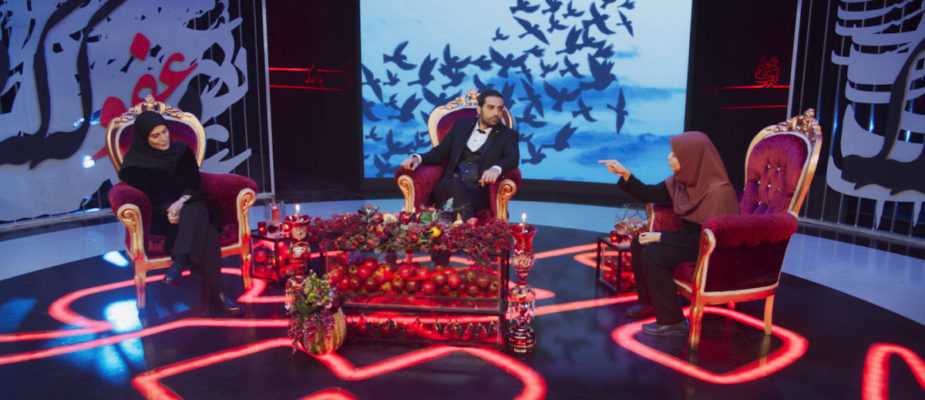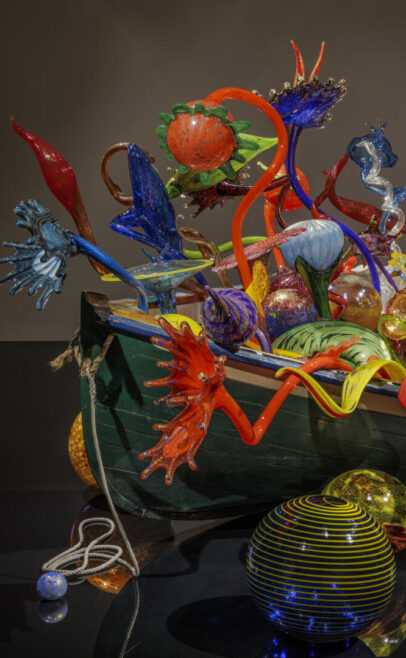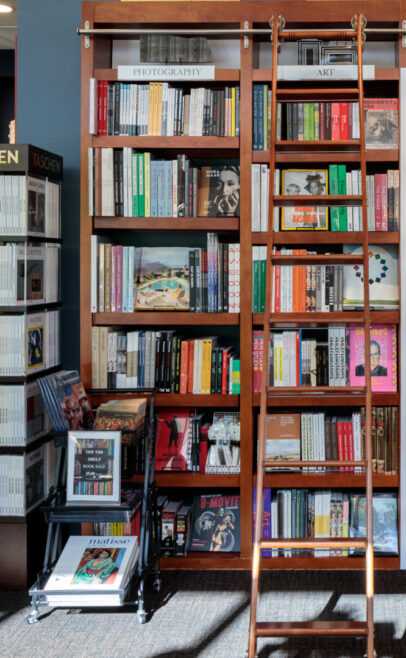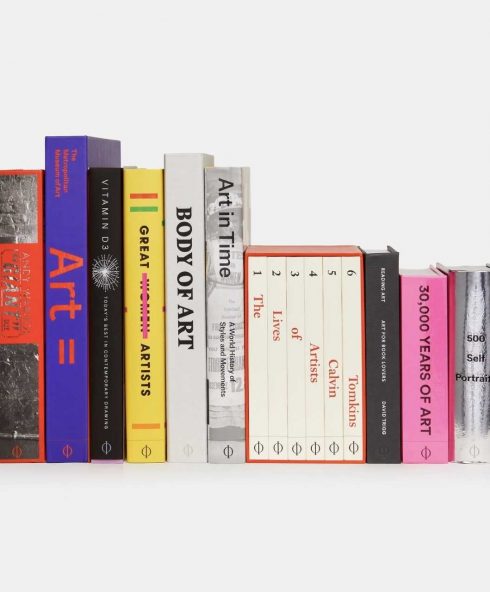Opening today in OKCMOA’s Virtual Cinema are two new international prize-winning films from Central (Uzbekistan) and Western Asia (Iran) that each construct their narrative around a television program. The Iranian feature, Massoud Bakhshi’s Yalda, a Night for Forgiveness, is more persistent in this emphasis, with a story that unfolds in real-time around a live television broadcast. Taking its cue from a popular Iranian variety show, Yalda, named for the country’s winter solstice holiday, centers on a young widow named Maryam, who has killed her much older husband Nasser. For the program, producers have united Maryam with Nasser’s grown daughter Mona, who must decide whether or not to forgive the younger woman, who continues to insist on her innocence. Maryam’s fate also rests with the viewing public, who—like the audience of the real Iranian program—can prompt the show’s sponsors to pay the required “blood money” with a text message vote.
Writer-director Bakhshi begins with nighttime drone footage of Tehran, capturing an expansive modern metropolis that could be anywhere, before the handcuffed Maryam arrives at the studio. From here, the film alternates between the live broadcast and the behind-the-scenes production work as Maryam nervously awaits Mona’s arrival—and threatens not to appear on camera to the consternation of her mother. As Yalda progresses, we get revelations about Maryam’s “temporary marriage,” the fate of her still-born child, and the unseemly maneuvers of both Mona and Maryam’s meddling mother, all steamy soap-opera plot points that lend sympathy to the convicted killer as the suspense-laden film hurtles toward its dramatic conclusion.
For fans of the humanistic, often child-centered storylines and formal experimentation of such filmmakers as Abbas Kiarostami, Jafar Panahi, and Majid Majidi, Yalda may feel like a departure from the prevailing mode of Iranian art cinema. However, in view of the massive success of Asghar Farhadi (A Separation, The Salesman) over the past decade, Iranian cinema has begun to shade more towards Bakhshi’s mode of performance-driven melodrama, even as films like Yalda maintain a political edge purely by bringing details of contemporary Iranian culture to light (in this case the temporary marriage that ends in mariticide). Though Yalda doesn’t exactly push cinema into new territory in the same way that Kiarostami, Panahi, Mohsen Makhmalbaf, and many others did at the end of the 20th century, this Sundance prize-winner does succeed in opening a new window onto a world that remains perpetually unseen in our country.
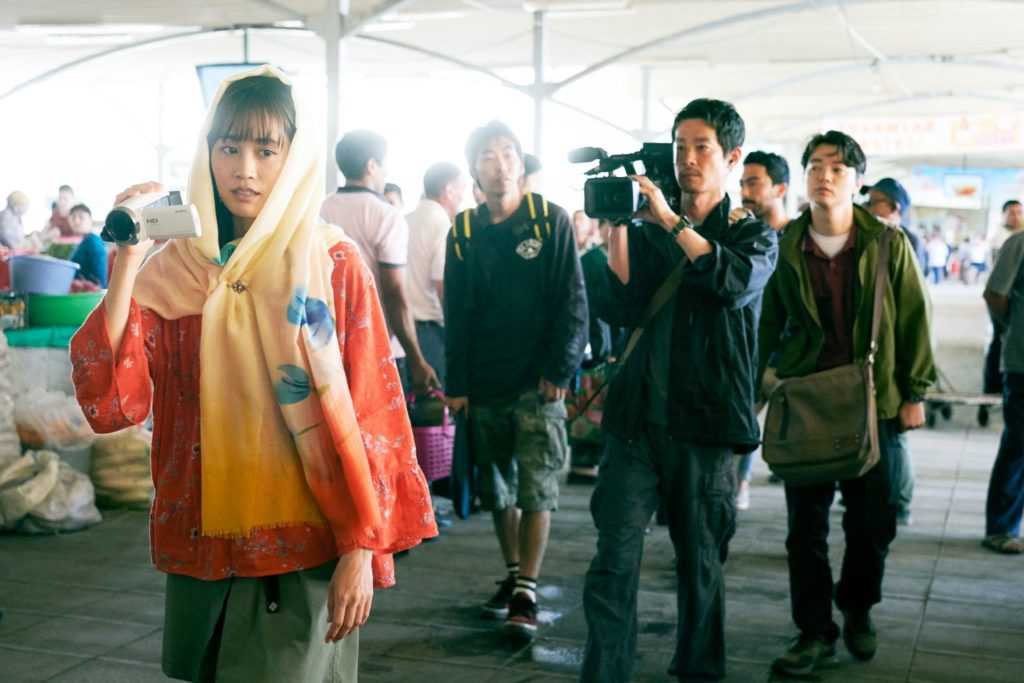
Far lighter in tone and decidedly loose in its structure, mid-career master Kiyoshi Kurosawa’s extraordinary To the Ends of the Earth follows Japanese travel show host Yoko (Atsuko Maeda) as she attempts to navigate Uzbekistan’s terra incognita through a series of disappointing cultural encounters, humdrum attractions, and touristic missteps. Yoko is every bit the outsider in this extremely unfamiliar place, unable to speak a word of (mostly untranslated in the film) Uzbek, and fearful of the motives of the gawking locals. When first we join Yoko, she’s rushing, late to join the rest of her television production crew as they set up near Uzbekistan’s largest lake—a big “puddle” created in error in the 1970s. Guided by a rather sexist Uzbek fisherman in an attempt to catch a possibly-mythical fish, Yoko spiritedly wades out into the body of water, reporting directly into the camera as the film’s widescreen is replaced by a more square aspect ratio to connote a traditional television format. This unsatisfying incident proves just the first in a series of lightly comical flops for the crew, blunders that most spectacularly include a nausea-inducing ride in an antiquated amusement park.
Through it all, Yoko maintains a veneer of professionalism on camera, even as she repeatedly falters off. In the ancient Silk Road city of Samarkand, Yoko loses the trail, finding herself anxiously wandering labyrinthine streets and alleys as dusk approaches. In moments like these, To the Ends of the Earth resembles nothing so much as the films of the aforementioned Iranian maestro, Kiarostami (Where is the Friend’s House?, 1987; and Panahi’s The White Balloon, 1995, whose screenplay the director penned) with the primary difference being the ages of the respective films heroes, Yoko’s childlike stature aside. Indeed, in making his “Kiarostami film,”* as unexpected as that might be for a filmmaker most associated with J-horror, Kurosawa recasts the Iranian’s child protagonists with a foreign visitor—or an alien, in keeping with the Japanese filmmaker’s more recent efforts like the excellent Before We Vanish (2017) and its B-side Yocho (2018). In both To the Ends of the Earth and the Kiarostami films it echoes, it remains for the film’s hero to learn that the unfamiliar and scary world is not as malevolent as they once imagined.
In this sense, Kurosawa’s latest proves a very ecumenical effort, a film that preaches listening and understanding when confronted with cultural stereotypes and the unfamiliar. Drawing on prejudicial audience assumptions and strong focalization through Yoko’s psychological perspective, the film finally disabuses us of our more negative expectations. We come to see Uzbekistan as a country of helpful and benevolent people—a truth that it takes Yoko comically long to discover. Throughout, Kurosawa’s free and intuitive camera style, which moves between impassive static set-ups and sinuous journalistic hand-held style, helps to smooth the film’s hairpin shifts in mood tone, from wry bemusement to terror to pathos.
To the Ends of the Earth is also a film that eventually opens to the beauty of a place that we initially encounter as ugly and undesirable, first in Yoko’s dreamlike idyll in an opulent Tashkent theater—built by Japanese laborers—and the operatic music that draws her in to the space; and then in an mirage-like alpine landscape that appears near the film’s unexpectedly cathartic conclusion. Here, the J-Pop star reprises an love song (Édith Piaf’s soaring “Hymne à l’amour”) she performed previously in a moment of fantasy, transforming the Kiarostami-inspired travelogue narrative into something more closely resembling The Sound of Music. This moment of last-act shape-shifting recalls the director’s Doppleganger (2003) among other early multi-genre efforts, as one thing becomes quite another—a fit metaphor for the alien Japanese director’s Uzbekistan.
Both Yalda, a Night for Forgiveness and To the Ends of the Earth are available for rental through OKCMOA’s Virtual Cinema, as is another new release predicated on the power of music, classical concert film Concerto – A Beethoven Journey.
Note (*): Museum visitors may remember Kiarostami’s landscape film, Five (2003), from an earlier iteration of OKCMOA’s seascape gallery.
